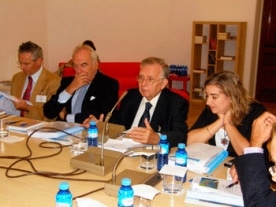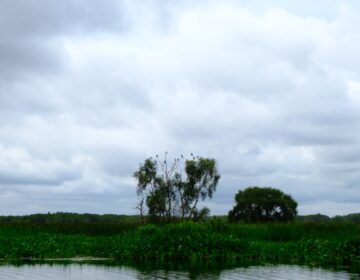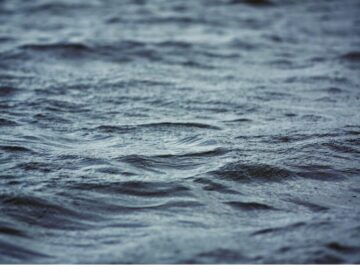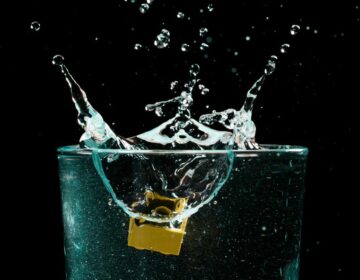
Los días 22, 23 y 24 de Septiembre de 2009, la Fundación Botin celebró el 4º Seminario de Aguas, una serie de seminarios de reconocido prestigio internacional que se llevan celebrando cada dos años aproximadamente en Santander.
En estos Seminarios, liderados por el Director del Observatorio del Agua el catedrático Ramón Llamas, se identifican temas de interés mundial, donde los mejores expertos en el tema se reúnen para hablar y reflexionar en profundidad durante tres días.
En esta ocasión sobre el tema de la seguridad hídrica y alimentaria a nivel mundial.
El 4º seminario contó con la presencia de 24 expertos de once países diferentes (Canadá, China, Suecia, Dinamarca, Túnez, Egipto, Nepal, Reino Unido, España, India e Holanda) que se reunieron para debatir temas, como el concepto de seguridad alimentaria, la creciente importancia del agua verde, la inter-relación entre cambio climático y recursos hídricos, las necesidades hídricas de los ecosistemas, desalinización, aguas subterráneas y los patrones de consumo y producción en relación a los recursos hídricos mundiales.
Se puso especial énfasis en el tema de seguridad hídrica y alimentaria, poniendo particular énfasis en la huella hídrica productiva (extended water footprint), donde el Observatorio del Agua está realizando un proyecto de impacto a nivel mundial.
Entre los expertos se encontraban Margaret Catley-Carlson (actual Chair del Consejo del Agua del Foro Económico Mundial), el catedrático Tony Allan (premios de Agua de Estocolmo del2008) y Malin Falkenmark (del Stockholm International Water Institute).
THEME A: WHAT DOES WATER AND FOOD SECURITY MEAN TODAY
1. The Impossibilities of Water in Agriculture: An Increasingly Unreal World: What We have to do about it. M. Catley-Carlsson (Global Water Partnership. Former President. Canadian International Development Agency, Canada).
2. Water for a Starving world: time to grasp the 1977 warning. Malin Falkenmark (SIWI, Sweden).
THEME B. GLOBAL TRADE AND VIRTUAL WATER TRADE
3. Re-thinking water and food security paradigms: can science and technology help change global water policy frameworks? R. Llamas and E. Lopez-Gunn (MBF Water Observatory, Spain).
4. Global agricultural green and blue water consumptive uses and virtual water trade. Hong Yang (Swiss Federal Institute of Technology, Zürich, Switzerland).
5. How to harmonize virtual water trade and future water management and policy dialogue. Karen G. Vilholth (GEUS, Denmark).
6. Economic aspects of virtual water trade: lessons from the Spanish case. Alberto Garrido (Polytechnic University of Madrid and MBF Water Observatory, Spain).
7. Water Scarcity and Food Security: a global assessment of water potentiality in Tunisia. Jamel Chahed (ENIT, Tunisia).
8. Revisiting the present and future roles of water and food trade in achieving food security, reducing poverty and water use in the Mediterranean region (Part 1). Juan Antonio Sagardoy (Instituto Agronomico de Bari; formerly FAO).
9. Revisiting the present and future roles of water and food trade in achieving food security, reducing poverty and water use in the Mediterranean region (Part 2).Consuelo Varela-Ortega (Polytechnic University of Madrid, Spain).
THEME C. GLOBAL SUSTAINABLE PRODUCTION AND CONSUMPTION
10. Water Commoditization: An Ethical Perspective for a Sustainable Use and Management of Water Resources, with Special Reference to the Arab Region Magdy Hefni (Regional Center for Research and Studies of Water Use Ethics, Ministry of Water Resources and Irrigation).
11. The role of consumption behaviour in determining water and food demand. Tony Allan (King´s College and SOAS).
12. Water in the food and value chain – increasing the beneficial use of water. Jan Lundqvist (SIWI, Sweden).
13. Private sector engagement in water: water footprints and policy. Stuart Orr (WWF-International).
THEME D. WATER FOOTPRINT CASE STUDIES
14. Water quality and Non-point pollution: comparative global analysis. Jose Albiac (Agrifood Research and Technology Centre, Government of Aragon, Spain).
15. Improved water management through the water footprint: incorporating the environmental water requirements into practice: water footprint analysis of the Doñana national park. M. Aldaya (University of Twente, Holland).
THEME E. THE ROLE OF GROUNDWATER SILENT REVOLUTION IN WATER AND FOOD SECURITY
16. Managing externalities of groundwater use through electricity reforms: Evidence from three states in India. Aditi Mukherji (IWMI, Sri Lanka).
17. Intensive groundwater development: a water cycle transformation, a social revolution and a management challenge. Emilio Custodio (UPC, Spain) and Luis Martinez Cortina (IGME, Spain).
THEME F. WATER, ENERGY AND ´NEW´ WATER TECHNOLOGIES
18. Consuming rice is water intensive, but are the impacts that severe? A. Chapagain (WWF-UK).
19. General trends on costs for desalination of sea water. AGBAR, Spain.
20. Water and Energy nexus- the role of technology. J. Cramwinckel (Shell, Holland).
21. The foreseeable energy supply for the coming decades and its water demand. I. Nieto (Former Secretary of State for Energy of Spain, Spain).





Compartir